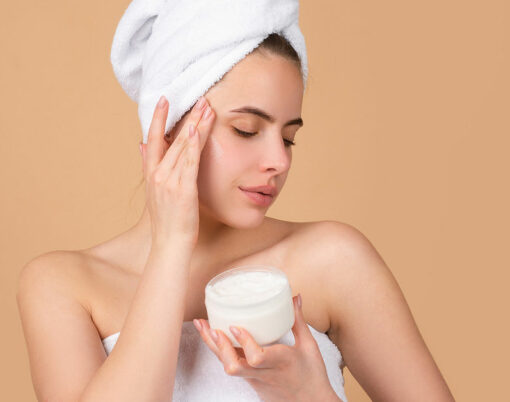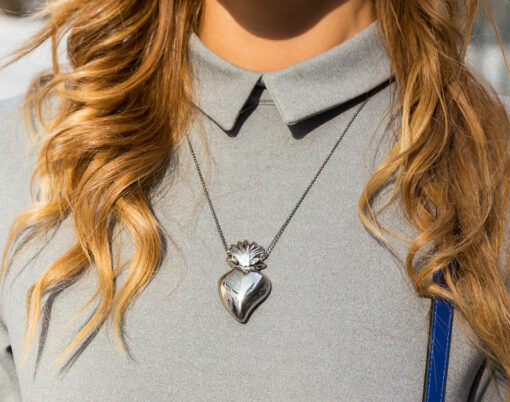Thinking about having a skintox this January, but not sure of the various ingredients, foods and lifestyle changes that will help elevate your skins health? Not to worry, we’ve enlisted the help of Amanda von dem Hagen, skincare development officer at Glo Skin Beauty. She’s answered all those burning questions you may have regarding a skin-changing detox.
• Is there a link between what we eat and our skin health?
Yes – the food we eat on a regular basis determines our overall skin health and how it looks and feels. To maintain healthy glowing skin you should ensure you eat wrinkle-fighting antioxidant foods such as fruits and vegetables, as well as hydrating healthy fats which you find in fish.
• Are there certain ingredients or foods we should opt for to improve our skin health?
A few key nutrients that you should try and include in your daily diet are Vitamin A, Zinc, Antioxidants, Probiotics and Omega 3, these all provide varying benefits to your skin and overall diet, but all help to keep your skin youthful and plump. Antioxidants are probably the number one ingredient for healthy skin, as these fight against free radical damage from day-to-day exposure. You can find these in green tea, oranges, lemons, tomatoes, potatoes, avocados and spinach.
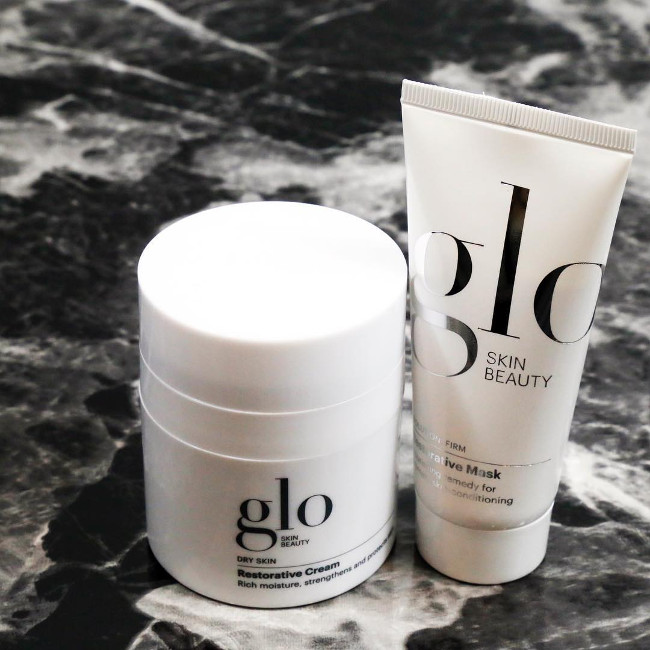
• Are there any ingredients/foods that can help boost collagen production?
Yes – There are a few key foods that help retain and produce collagen within the skins cells. Soy products, dark green vegetables such as spinach, cabbage and kale are packed with an antioxidant called ‘lutein’ which after regular intakes helps strengthen the body’s ability to create collagen. A few other foods are beans, red fruits and vegetables, Vitamin C, Prunes, Omega acids, flaxseeds, Manuka honey and avocado oil.
• Are there any ingredients/foods that can help balance oil production?
If you suffer with oily skin there are some ingredients you can add into your diet to try and counteract these oils. People with oily skin are more prone to suffer with blackheads and acne due to the excess sebum production. The best foods for oily skin are cucumber which has antioxidant properties, grapefruit which is rich in vitamin C and helps flush the body of toxins. Foods to avoid for oily skin are dairy products, salty snacks, fatty meats and added sugars.
• Are there any ingredients/foods that can help combat dryness?
Yes – Cucumbers, avocados, tangerines, coconut oil, lemon water, salmon, and nuts and seeds.
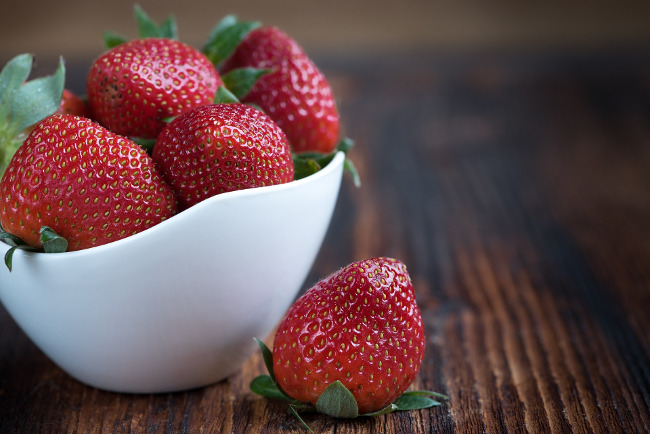
• Are there any ingredients/food that can help clear up acne?
Drinking plenty of water is key for this, and again eating clean ingredients which are high in antioxidants such as blueberries, Nettles, Peppermint and Nuts.
• Are there certain ingredients or food we should avoid because of negative effects on the skin? (E.g. sugar, caffeine)
The worst kinds of food you should try to avoid if you want to keep your skin healthy and youthful are rice cakes, sweets, Milk, Crisps, Fizzy drinks, Margarine, fast food and caffeine. Caffeine is a dehydrating agent not only for your skin but your whole body, drinking too much caffeine and not enough water can result in dry, dehydrated skin which may be prone to dullness.
• Can physical activity contribute to your skin health? If yes, in what way (e.g. increasing your heart rate increases blood flow? Sweat detoxes the skin?)
Exercise is certainly beneficial to our skin health, by increasing the blood flow, exercise can help nourish our skin cells. Blood carries oxygen and nutrients to cells throughout the body, including our skin. The blood flow also helps rid of nasty toxins such as free radicals which make us look drawn and dull. Generally speaking, exercise reduces stress and when stress is reduced it shows in our skin and we appear more youthful. Sweating can also help rid excess sebum from our clogged pores as when we sweat our pores open up and we sweat out nasty toxins, however you must ensure you wear no makeup to the gym and wash your face with cold water after to ensure pores are clean and closed.
• Are there any simple daily tasks people can do to improve the health of their skin?
Cleansing, toning and moisturising and are paramount when ensuring skins health. Ensuring you use an SPF and your moisturiser includes anti-pollutant properties such as Vitamin C are vital to fight against free radicals we see in daily city life. 8 hours sleep a night is also important in ensuring our skin gets the rest it needs. Regular exercise. If you suffer from dry skin using a face mist or a moisturising cream regularly would be advisable to retain moisture in the skin. Cutting out bad habits like smoking, drinking and unhealthy eating will also have a huge effect on the skin.
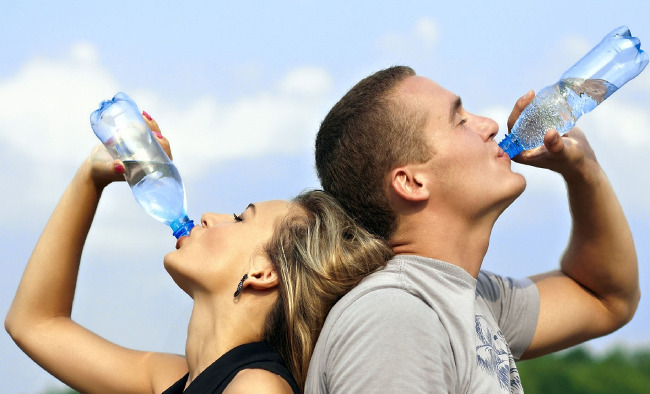
• How much water should you consume for optimal skin health?
The advised amount would be 8 glasses of water, or 3 litres. Drinking enough water per day is probably the cheapest, quickest and easiest thing you can do to help your skin and to rehydrate it. Not only does it help rid toxins, it also improves concentration, our eye health and helps us function better day to day.
• Should you treat your skin differently depending on the season?
Yes – You should be using an SPF all year round, but in winter you should be making sure you use a thicker, heavier duty moisturiser to keep skin soft and supple. You may also want to throw in an oil such as rosehip to rehydrate skin and keep its moisture. Summer, a lighter moisturiser is advised and ensuring you use a high SPF to save your skin from the sun’s harmful rays. Facial sprays can be used all round, as a soothing, revitalizing spritz to regain moisture.
• It’s currently winter, what should we be doing?
You should maintain a good and regular skincare regime, such as cleansing toning and moisturising. You may want to switch up a lighter moisturiser for a more heavy duty one, but one that still holds anti-pollutant properties and SPF. You may want to be using a serum or facial oil which includes ingredients such as retinol, hyaluronic or Vitamin C which are Anti-oxidants which help in keeping skin youthful and hydrated. You may also want to use moisturising facial sheet masks once a week, to help regain skins moisture and glow. An overnight hydrating mask may also help with your skin against the colder weather. Even though it’s cold out, ensuring you still get a suitable amount of exercise in will help the blood flow to the skin and ensure it stays healthy and plump.

















